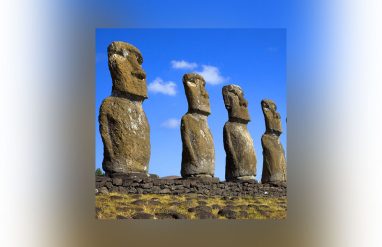What is Rosh Hashanah?
Rosh Hashanah, usually commemorated in September, marks the beginning of the Jewish New Year. At sunset, families and friends gather to pray and then eat the traditional honey and apples, which symbolize the hope for a sweet new year.
Rosh Hashanah, also spelled Hashana or Ha-shanah, comes from Hebrew and, most simply put, means “beginning of the year.”
Rosh Hashanah not only marks the new year—it also honors the creation date of Adam and Eve some 5,700 years ago, the first relationship, and the human connection with God’s world.
Rosh Hashanah ushers in a 10-day period known as the Yamim Nora-im (“Days of Awe” or “High Holidays”). Nine days after the first day of Rosh Hashanah, Jews will observe Yom Kippur, which means “day of atonement.” During Yom Kippur, observers abstain from eating and drinking and participate in daylong prayers of repentance. Forgiveness is asked for sins committed during the year.
Dive deeper into the history and significance of Rosh Hashanah here.
Why isn’t Jewish New Year celebrated on January 1?
The Hebrews used a lunisolar calendar long before the Gregorian calendar established the system used in other places around the world. The Jewish calendar contains 12 months and consists of 353 to 355 days, instead of 365 or 366.
Other major holidays throughout the Jewish calendar include Passover, a spring holiday that commemorates the story of Exodus, and Hanukkah, the eight-day celebration of the rededication of the Second Temple in Jerusalem.
What is the Rosh Hashanah tradition of the shofar?
One tradition of the holiday is the blowing of the shofar, a ram’s horn that doubles as a wind instrument. Historically, use of the shofar varied from communicating signals in battle to announcing the beginning of the Sabbath. Now, it’s primarily used at synagogue services at this time of year.
The word shofar is from Hebrew, and it’s related to the Arabic word sawafiru, which means “ram’s horn.”
What can you say to wish someone a happy Rosh Hashanah?
While “Happy birthday, humanity” might be tempting, the traditional Jewish greeting Shana Tova means “good year.” The longer version Shana Tova U’metukah wishes someone “a good and sweet year.”














